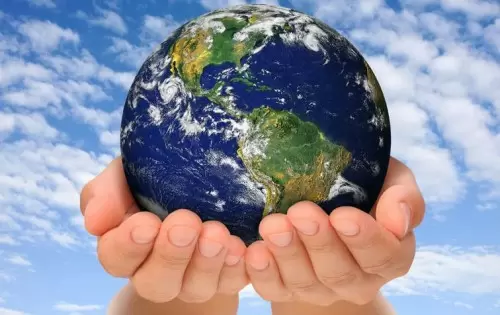“Home on the Range” isn't just our state song in Kansas, it's an accurate description of our lifestyle. We're one of the most productive agricultural states in the union, exporting some $3.6 billion worth of beef, wheat, soybeans, and corn each year to the world.
It's a fine place for outdoor recreation, too, with hunting, fishing, and horseback riding all common hobbies for residents taking advantage of that wide-open prairie land.
We're about as far as you can get from any ocean, but water is a big deal for farmers, and the quality and management of the Missouri and Arkansas rivers are an ongoing concern for Kansas environmental managers. And below the surface, the ominous decline of the vast Ogallala Aquifer threatens the lives and livelihoods of everyone in the state.
It's a threat that has revitalized environmental science and environmentalism in a state that was long content to look the other way, and today that makes earning a degree in environmental science a smart move for Kansans.
What Can I Do with an Environmental Science Degree in Kansas
Unlike many states, the state government, after dramatic budget cuts, is not a big player in the environmental jobs market. Hydrologists and soil scientists are obviously in big demand with big ag companies in Kansas, however.
Kansas industry always needs talented, experienced environmental specialists. Pfizer, South Star Central Gas Pipeline, and other manufacturing or industrial operations need well-trained environmental scientists for monitoring and compliance positions, as well as environmental engineers to put together sustainable practices in the first place.
There is also a market for environmental experts who deal with the long-term consequences of past failures to protect our land and water resources. Boeing largely packed up and moved their big Wichita plant in 2012, for example, but after 85 years of heavy manufacturing there, the company is on the hook for decades of remediation work to roll back the environmental impacts.
According to the Bureau of Labor Statistics, conservation scientists should expect to make around $65,420 annually here. Environmental scientists and hydrologists do even better, making over $70,000.
2020 US Bureau of Labor Statistics salary figures and job growth projections for Conservation Scientists, Environmental Scientists and Specialists, and Hydrologists reflect state data not school-specific information. Conditions in your area may vary. Data accessed September 2021.
Master's in Environmental Science in Kansas
At the master's level, environmental schools in Kansas offer a superb education with plenty of first-hand experience from field experiments and projects run by the students themselves. Although they may be located in small towns, the depth and excellence of research performed at these schools is unsurpassed.
K-State, dominating the famous “Little Apple” of Manhattan, is particularly well-known for groundbreaking graduate research on inter-regional comparisons of land-use effects on stream metabolism.
Wichita State University, meanwhile, delivers a master of science program in earth, environmental, and physical sciences that allows you to heavily customize your course of study to match up with your professional ambitions in the field.
Bachelor's in Environmental Science in Kansas
Of course, you can't get a master's without a bachelor's degree first, and you won't get into a good master's program without a strong undergraduate foundation behind you.
Kansas schools have got you covered in this department, too. The University of Kansas, in Lawrence, offers BA, BS, and BGS degrees in environmental studies which offer a strong interdisciplinary focus that will prepare you for ongoing study, or a job, in environmental science after graduation.
And it might be a surprise to hear it in a town the size of Lawrence, but there's also another solid option in the Haskell Indian Nations University, the premier tribal university in the United States, just up the street. The bachelor of science in environmental science there explores the interconnected living and non-living components of the natural world using the latest theory and technologies.
Online Environmental Science Degree Options from Schools in Kansas
In a largely rural state, online degree programs can be a godsend. Leaving aside the already incredible convenience of being able to take classes and consume course content at any time of day, the magic of the internet also keeps you from having to relocate to more expensive college towns in order to earn a degree.
So degree programs like the Fort Hays State University bachelor of science in geosciences are a tremendous saver in time and money for Kansas undergrads. Through the school's Virtual University, you can complete the geography emphasis of the BS without ever setting foot in Hays.







